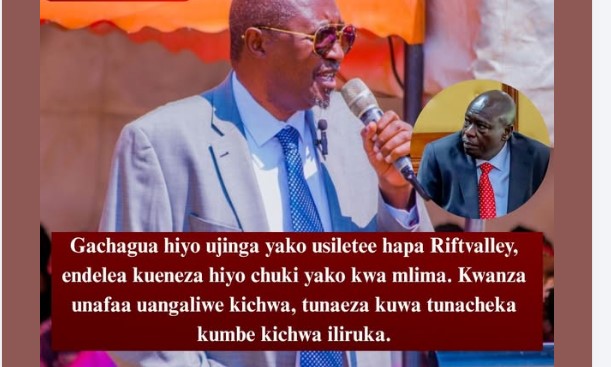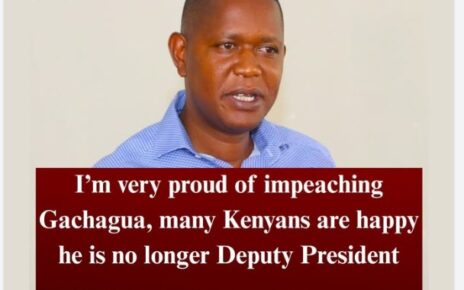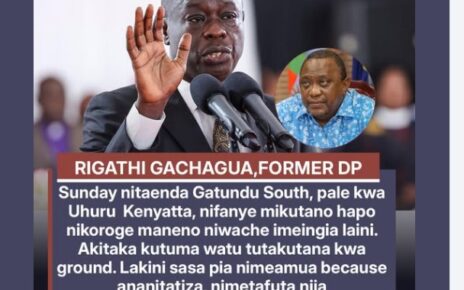Former Bahati MP Kiamani Ngunjiri has unleashed a fiery attack on Deputy President Rigathi Gachagua, accusing him of spreading division and attempting to drag Rift Valley into Mt. Kenya’s political wars. In a heated statement that has stirred nationwide reaction, Ngunjiri warned Gachagua to keep what he termed as “toxic politics” away from the region.
“Gachagua, hiyo ujinga yako usiletee hapa Rift Valley. Endelea kueneza hiyo chuki yako kwa Mlima. Kwanza unafaa uangaliwe kichwa, tunaeza kuwa tunacheka kumbe kichwa iliruka,” Ngunjiri lashed out, leaving no room for doubt about his position.
His remarks come at a time when political tensions within the Kenya Kwanza coalition are rising, especially between leaders from Mt. Kenya and those from President William Ruto’s Rift Valley backyard. Ngunjiri’s blunt warning signals growing discomfort over Gachagua’s approach to regional politics and his persistent push to assert dominance in Mt. Kenya.
Analysts suggest that Ngunjiri’s comments reflect fear that Gachagua’s rhetoric—often framed around loyalty, tribal identity, and political entitlement—could disrupt the delicate unity that Kenya Kwanza depends on. Rift Valley leaders, keen on maintaining political stability, appear increasingly unwilling to entertain narratives that may ignite inter-regional mistrust.
Ngunjiri has never shied away from confronting powerful figures, and his latest attack has elevated the conversation about leadership conduct and political maturity within the ruling coalition. To him, Gachagua’s style is not only divisive but potentially damaging to national cohesion.
Residents and social media users have shown mixed reactions. Some have praised Ngunjiri for “speaking the truth boldly,” while others believe the comments escalate unnecessary tension. Regardless, it is clear that the battle for control, influence, and narrative within Kenya Kwanza is far from over.
As 2027 draws nearer, the political temperature continues to rise. Ngunjiri’s warning is not just a personal criticism—it is a signal that Rift Valley leaders will not entertain politics that threaten their unity or the broader stability of the ruling coalition.



